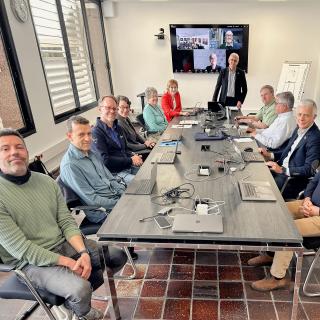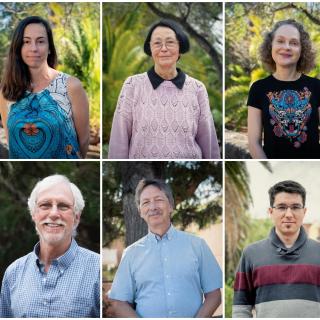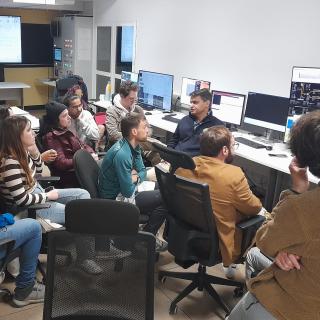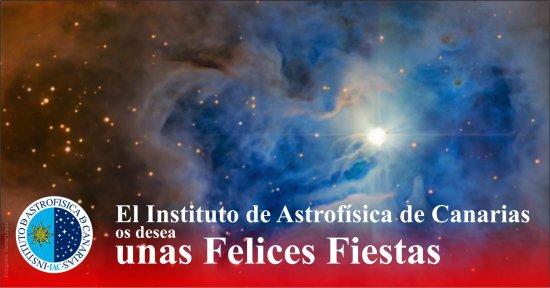It may interest you
-
 From Thursday, May 8th, to Friday, May 9th, the Canary Islands Institute of Astrophysics (IAC) is hosting the meeting of the Research Advisory Committee (CAI). This is the center's highest advisory body on research and analyzes its scientific and technological output. At this meeting, the director, Valentín Martínez Pillet, will present the center's main scientific and technological milestones, as well as a proposal for future lines of action. The director will also be joined by Eva Villaver, deputy director of the IAC; Romano Corradi, director of Gran Telescopio Canarias; Jonay GonzálezAdvertised on
From Thursday, May 8th, to Friday, May 9th, the Canary Islands Institute of Astrophysics (IAC) is hosting the meeting of the Research Advisory Committee (CAI). This is the center's highest advisory body on research and analyzes its scientific and technological output. At this meeting, the director, Valentín Martínez Pillet, will present the center's main scientific and technological milestones, as well as a proposal for future lines of action. The director will also be joined by Eva Villaver, deputy director of the IAC; Romano Corradi, director of Gran Telescopio Canarias; Jonay GonzálezAdvertised on -
 El Instituto de Astrofísica de Canarias (IAC) sigue afianzando su capacidad de atracción de talento científico internacional a través del programa “Investigadores Visitantes” en colaboración con Fundación Occident. Al cierre de este año 2025, el programa Investigadores Visitantes Fundación Occident no solo celebra más de diez años de trayectoria ininterrumpida, sino que anuncia la renovación del convenio de colaboración entre ambas entidades hasta el año 2028. Esta prórroga garantiza que el IAC continúe recibiendo anualmente a personal científico de primer nivel mundial, consolidando unAdvertised on
El Instituto de Astrofísica de Canarias (IAC) sigue afianzando su capacidad de atracción de talento científico internacional a través del programa “Investigadores Visitantes” en colaboración con Fundación Occident. Al cierre de este año 2025, el programa Investigadores Visitantes Fundación Occident no solo celebra más de diez años de trayectoria ininterrumpida, sino que anuncia la renovación del convenio de colaboración entre ambas entidades hasta el año 2028. Esta prórroga garantiza que el IAC continúe recibiendo anualmente a personal científico de primer nivel mundial, consolidando unAdvertised on -
 The EU-funded EDUCADO project (Exploring the Deep Universe by Computational Analysis of Data from Observations) at the Instituto de Astrofísica de Canarias (IAC) is organising a two-night astronomical observation school providing hands-on research training for early-stage researchers in astronomy and computer science. The program will convene 15 doctoral candidates from across Europe for an immersive, interdisciplinary learning experience. Attendees will engage in night time astronomical observations utilizing state-of-the-art telescopic instrumentation, guided data analysis workshops, andAdvertised on
The EU-funded EDUCADO project (Exploring the Deep Universe by Computational Analysis of Data from Observations) at the Instituto de Astrofísica de Canarias (IAC) is organising a two-night astronomical observation school providing hands-on research training for early-stage researchers in astronomy and computer science. The program will convene 15 doctoral candidates from across Europe for an immersive, interdisciplinary learning experience. Attendees will engage in night time astronomical observations utilizing state-of-the-art telescopic instrumentation, guided data analysis workshops, andAdvertised on
